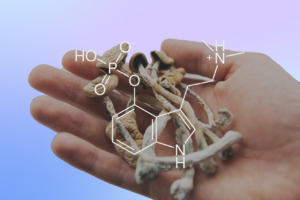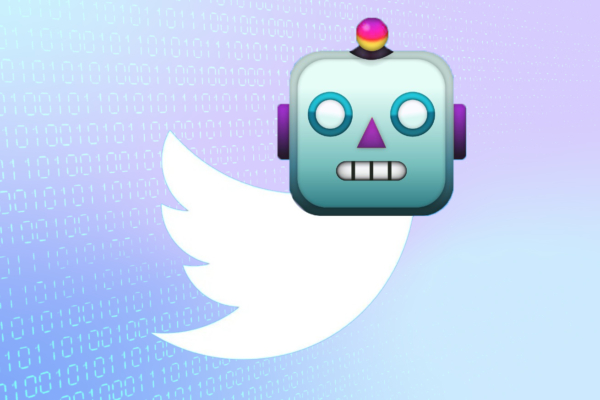
Psychedelics may have been considered an unorthodox method of treatment for various ailments, but it is slowly emerging as one of the most efficient ways of treating mental health conditions with great success. Research suggests that the use of psychedelics alters neurotransmitters in the body, making it possible to reduce symptoms such as anxiety and PTSD in instances where other methods of treatment may have failed. Below, we look at the benefits of psychedelic therapy, its risks, and how it works.
The Science Behind Psychedelics and Mental Health
While traditional medicines can take weeks to relieve patients of their mental health ailments, psychedelics provide immediate effects. So, how do they work? A study conducted by Weill Cornell Medicine researchers indicates that psychedelics such as psilocybin, found in mushrooms, and LSD help activate the serotonin receptors in the brain. This then reduces the energy required to move from one state to another, making it easy for patients to shift between different mindsets. It also helps change the brain’s behavior and improves your mood.
Patients using psychedelics also become more suggestible, allowing them to receive suggestions from therapists and medical companions quickly. Some of the most common types of psychedelics include LSD and DMT, both found in plants, mescaline obtained from cacti, and MDMA from the sassafras tree.
A survey-based study has paved the way for more research into psychedelic use. The study seeks to identify if this modern approach provided any notable benefits to patients. The participants, involving 2510 adults, looked at variables such as anxiety, depression, and emotional well-being before and after exposure to psychedelics. The findings indicated that psychedelic use produced significant recovery in the participants by reducing stress and depressive episodes for the individuals. Increased exposure also helped ease mental discomfort significantly, providing remarkable benefits for the participants.
The Benefits of Psychedelic Therapy
As previously discussed, psychedelics are making a mark on mental health, allowing patients to benefit in the following areas:
PTSD (Post-Traumatic Stress Disorder) Treatment
Psychedelic use has proven to be beneficial for easing the symptoms associated with PTSD. According to a 2020 study on stigmatization victims, psychedelic therapy sessions helped reduce the trauma experienced by individuals. The psychedelic used included a single dose of psilocybin, with an average of 10 therapy sessions showing reduced demoralization for the participants.
Anxiety Treatment
People dealing with frequent depression and anxiety have also been shown to have reduced stress following psychedelic use. A 2021 study detailing the experiences of 164 participants reported a significant reduction of anxiety, with the individuals also reporting increased self-compassion. This especially comes in handy for people undergoing depressive episodes, reducing the risk of self-harm. Patients with severe depression also responded positively to treatment, showing remarkable improvements over weeks of psychedelic use, where other therapies have proved futile.
Documentation from a 2020 review reported a 65% reduction in anxiety in prior studies, proving this new form of mental health treatment to be just as effective as traditional medicine methods.
Addiction Treatment
Addiction and mental health problems often go hand in hand, with experts at treatment centers for alcoholism noting that patients often suffer from both. Medical experts suggest that treating one may aid in lowering the symptoms of the other, allowing patients to receive overall care. In a 2015 study, researchers enlisted several participants with alcohol addiction. The volunteers first received psychotherapy, with the treatment not showing any improvement. Psychedelics were then introduced to the participants, with the individuals reported to have drunk less after this. Intense exposure to psychedelics showed extreme changes, with long-term use expected to help the participants quit drinking.
Other types of addiction that have shown to produce remarkable results with psychedelic use include smoking, with plant compounds such as ibogaine and psilocybin proving effective. Patients suffering from addiction effects such as eating disorders can also benefit from psychedelic use. Treatment at a luxury rehab center can help individuals undergoing such a challenge adopt a healthy mindset for improved behavioral changes. Psychedelic therapy often steers patients away from unhealthy thinking patterns, making it possible to deal with underlying mental health symptoms that could cause eating disorders.
Personal Accounts for Patients Dealing With Mental Health Issues
Participant testimonials reveal that their use of psychedelics has provided a life-changing effect, with numerous having experienced beneficial coping mechanisms for disorders such as anxiety and depression. Tom, a user of psilocybin and LSD, reports improved problem-solving capabilities, allowing him to change negative aspects of his life for the better. He notes that while psychedelics are seen as a drug, they are potent medicine, allowing users to heal from traumatic and addiction issues.
The Risks of Psychedelic Therapy
While studies show few risks associated with psychedelic therapy, this treatment involves the alteration of neurotransmitters that may cause moderate to severe risks for various patients. A few of these side effects include:
Fear
Psychedelics often cause hallucinations, which could result in fear for a minority of the patients. If the hallucinations involve items or events that may have been traumatic, this could create violent episodes of anxiety, making the psychedelic therapy a risk. Some individuals may also believe they are at risk of death, causing them to spiral out of control. Patients are advised to discontinue their use of psychedelics when this happens.
Psychosis
Psychosis is another short-term risk associated with the use of psychedelics. Patients with a prior history of conditions that cause psychosis are known to be at a greater risk for this. Participants may receive smaller doses of psychedelics or have their therapy discontinued for their safety, depending on the severity of the psychosis. Other risks related to psychosis include hyperawareness of physiological processes, panic, and troubling thoughts.
Cardiovascular Problems
Since psychedelics often prove beneficial as mood stabilizers, they may occasionally affect your heart rate, which could prove hazardous for already ailing patients. Additionally, psychedelics can also elevate the blood pressure in some individuals making their use a concern. The high dosage could also affect blood vessels and may lead to coronary artery spasms and thrombus formation among participants with pre-existing blood vessel issues. If you have a history of such ailments, ensure that your provider knows these risks before enrolling in any psychedelic therapy.
The Legal and Political Climate Surrounding the Use of Psychedelics
While medical practitioners in mental rehab centers are aware of the benefits that psychedelics provide to patients suffering from mental health conditions, legal and political experts tend to differ on these positive impacts, with numerous classifying them as significant contributors to ongoing drug addiction. Notably, this may change after the FDA’s approval for trials involving psilocybin and MDMA.
Experts attending a virtual seminar, “Introducing POPLAR: The Future of Psychedelics Law and Regulation,” state that legal restrictions are often rigorous regarding research on psychedelics. The bureaucracy is tedious, with experts required to acquire numerous documentation materials from the proper facilities. Due to the gap in academic information on psychedelic use, independent researchers often take on the burden of the studies, resulting in significant expenses and time wastage.
Contrary to popular belief, the largest obstacle to using psychedelics is often not legal but political. Navigating the legal field is easy to bypass, with the only downfall being the expensive certification costs due to the lack of legislation related to this sector. Political goodwill is, however, often amiss, with numerous federal representatives adamant about changing policies surrounding psychedelics. More often than not, psychedelic use is a criminal offense, with police given free rein to arrest individuals and facilities using psychedelics. Even with this, researchers are hopeful that state and municipal representatives can help change this.
Oregon and California are setting the pace for decriminalizing psychedelics, with the former legalizing use of psilocybin for medical purposes. Just like marijuana use, psychedelics may only be widely accepted if classified as medical alternatives. This may, however, take time for the masses and political parties to be fully on board.
Conclusion
Psychedelics are a powerful treatment for anxiety, trauma, and drug addictions, with numerous studies backing their use in these areas. Notably, participants with underlying medical conditions will be required to take these with caution as these may pose risks such as fear, psychosis, and cardiovascular issues. Despite the benefits associated with psychedelic treatments, the lack of political goodwill has hindered medical practitioners from taking these findings to the general public on a large scale. Due to this, more awareness is required to advocate for using psychedelics in treating anxiety and PTSD, allowing legal and political legislators to ease the stringent regulations for these beneficial products.





